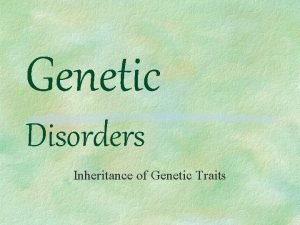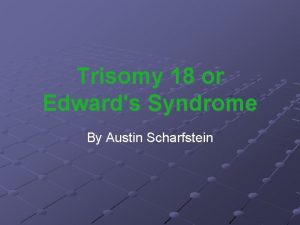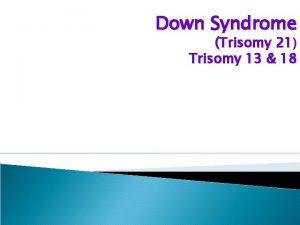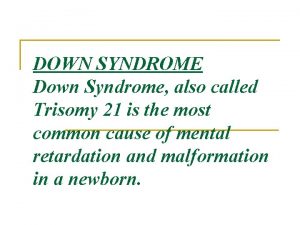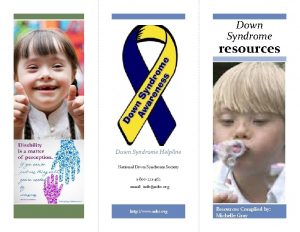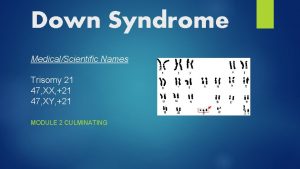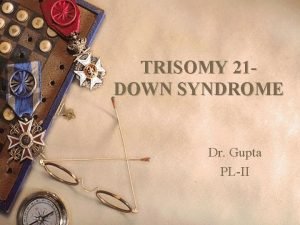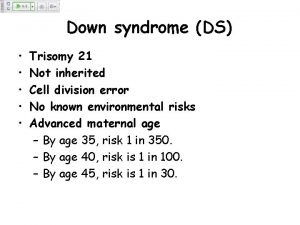DOWN SYNDROME TRISOMY 21 KIARA LYNCH MRS STIELL










- Slides: 10

DOWN SYNDROME/ TRISOMY 21 KIARA LYNCH MRS. STIELL 2 ND PERIOD

DOWN SYNDROME Down Syndrome is a genetic disorder caused when irregular cell division results in additional genetic information from Chromosome 21. It results in a prominent facial appearance, pyschological disadvantage, and developmental prevention. May be associated with thyroid or heart disease. Most people with Down Syndrome develop it between months of age to 40 years of age.

WHO DISCOVERED IT? • In 1866, Dr. John Langdon Down, a British physician, described Down Syndrome as a disorder. Unfortunately, but he misinterpreted how Down Syndrome arises. Down first named the disorder "Mongolism".

2 ND DISCOVERY • In 1959, Jerome Lejeune, a French geneticist discovered Down Syndrome as a genetic disorder, although it was not accepted until the 1970 s.

DIAGNOSIS • There are two types of tests: diagnostic and screening tests. • There are diagnostic tests such as villus sampling or amniocentesis. • There are screening tests such as an ultrasound or blood test during your 1 st or 2 nd trimester. • These tests show if the fetus is at risk of developing Down Syndrome. • Unfortunately, gives false-positive and false-negative.

GENETICS It happens as an irregular during early stages of the development of a fetus, therefore it is not inherited from parents.

SIGNS AND SYMPTOMS • Lazy eye • Difficulty understanding • Excess skin on the back of neck • Obesity • Displacement of the tougue

TREATMENTS FOR DISORDER • Early intervention programs • Speech Therapy • Physical Therapy • Occupational Therapy

SOURCES www. mychildwithoutlimits. org/. . . /down-syndrome-treatment/ https: //www. nichd. nih. gov/health/topics/down/conditioninfo/Pages/diagnosed. aspx https: //www. nichd. nih. gov/health/topics/down/conditioninfo/Pages/symptoms. aspx

FUN FACT • Many people think that Down Syndrome is inherited, but it has nothing to do with your parents having it or being a carrier.









